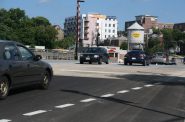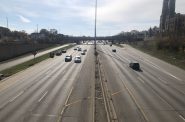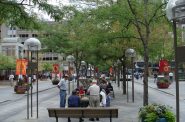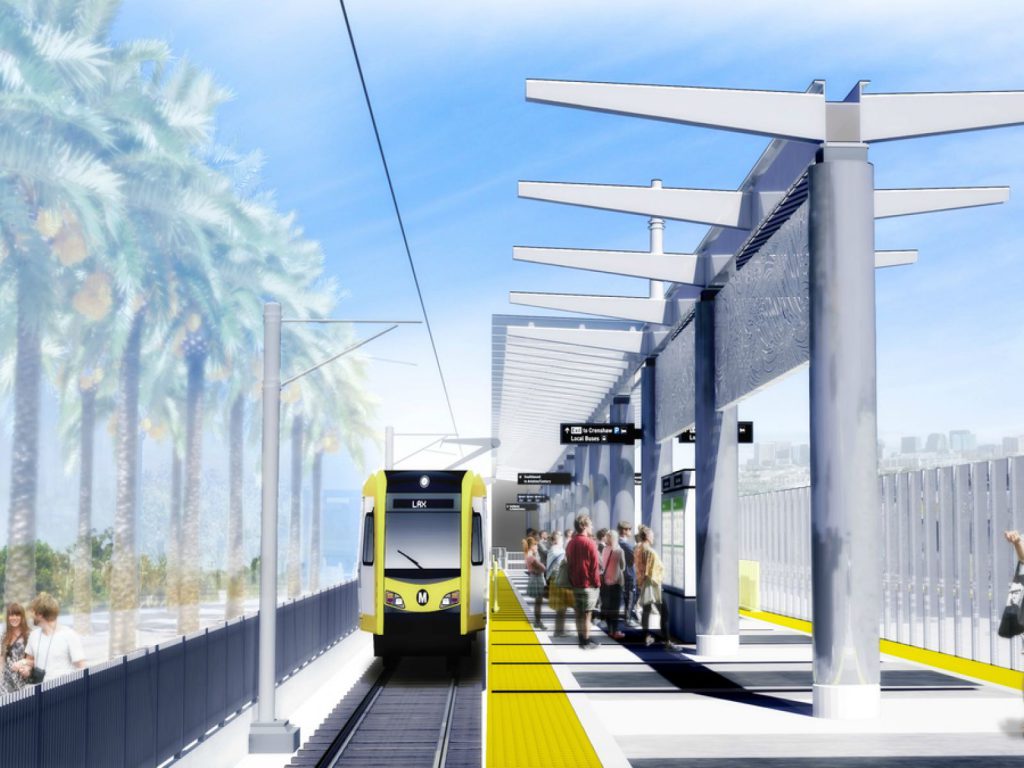2020’s Transit Openings
All the city news you can use.
Want more links to read? Visit The Overhead Wire and signup. Every day at The Overhead Wire we sort through over 1,500 news items about cities and share the best ones with our email list. At the end of the week, we take some of the most popular stories and share them with Urban Milwaukee readers. They are national (or international) links, sometimes entertaining and sometimes absurd, but hopefully useful.
Transit Openings 2020: Yonah Freemark tracks transit projects and releases an overview each year. 60 major transit projects in North America will be under construction in 2020, with all of them expected to open by 2026. Some cities, like Montreal and Seattle, will essentially double the size of their rail systems during that time. Eight bus rapid transit projects will open, including those in Houston, Grand Rapids, and Vancouver. New Light rail lines are opening in Los Angeles and Guadalajara, while metro rail projects will open in the San Francisco Bay Area, Washington, D.C., and the long-awaited first phase of Honolulu Rail Transit. (Yonah Freemark | The Transport Politic)
Parking Requirements and the Housing Crisis: In Dallas, a parking space in a multifamily complex can cost about $1200 a year as building costs are passed down to the renter. Additionally, there is an opportunity cost to supplying so much parking with housing, as it takes space away from amenities and other more productive uses for residents. Katy Slade offers some simple solutions to Dallas’ Off-Street Parking Codes, like tandem parking, more compact spaces, and allowing bike parking to count toward parking reduction universally, not just in specific districts by DART stops. As parking requirements are reduced, the cost to construct and rent housing will be as well. (Katy Slade | D Magazine)
Historic Preservation Councils Block Solar Panels: Historic preservation councils, in their effort to prevent their neighborhoods from visibly changing, are obstructing solar panel installations nationwide. Sometimes, homeowners are forced to lay panels flat, wrap panels in special camouflage sheets, or otherwise reduce the efficiency of panels. Residents of historic districts simply believe that the impact on the neighborhood’s aesthetic experience is greater than the impact on climate change. David Roberts posits that humans are generally resistant to change, and sacrificing familiar comfort for the sake of marginal benefits to climate may be difficult. (David Roberts | Vox)
Measuring the Cost of a State’s Car Economy: A working paper from Harvard’s John F. Kennedy School of Government estimated the existing costs of Massachusetts’ “vehicle economy,” including 37,000 miles of roads and 4.5 million vehicles. These estimates consider upkeep, snow removal, traffic delays, pollution, and many other factors that add up to $64B for the state each year. This is higher than the $59B that the state planned to spend in fiscal year 2019, including federal funds and bond proceeds. Injuries and deaths alone are estimated to cost the state $10.5B, while lost productivity due to time spent in traffic about $4.6B. (Bill Lucia | Route Fifty)
Quote of the Week
A vacancy tax can have some positive outcomes for people who are struggling the most if we use the money that the tax would raise in an appropriate way. But again, it’s not getting at the root causes of our housing problems, which are myriad, but certainly have a lot to do with race.
-UCLA Professor Michael Lens on WBUR talking about the potential pros and cons of a vacancy tax on housing production.
This week on the podcast, Lacuna CEO Hugh Martin talks about open source operating systems for city streets.
Want more links to read? Visit The Overhead Wire and signup. (http://dtrnsfr.us/2iA8Yas)
Urban Reads
-
How Traffic Noise Impacts Children’s Brains
 Jul 1st, 2024 by Jeff Wood
Jul 1st, 2024 by Jeff Wood
-
Number of Super Commuters is Rising
 Jun 22nd, 2024 by Jeff Wood
Jun 22nd, 2024 by Jeff Wood
-
Why Has the Walkable City Been Villainized?
 Jun 9th, 2024 by Jeff Wood
Jun 9th, 2024 by Jeff Wood





















